Citizen science is rapidly becoming an invaluable tool in conservation. With technology providing new and interactive ways for anyone to contribute to conservation work from anywhere in the world, and on their own schedule, more conservationists than ever are turning to mobile apps and crowdsourced data analysis to speed up their projects and strengthen their data.
Similarly, more affordable and accessible tools like Audiomoth have opened the door for people to get involved in massive data collection efforts like the Silent Cities project, giving a glimpse into how our wider understanding of nature and conservation could be transformed as technology becomes increasingly user-friendly.
This group is your place for all things related to citizen science. Whether you're looking to get involved in a new conservation tech project, you're thinking of launching your own citizen science-powered project, you'd like to discuss capacity building and how citizen science can empower local communities, or you want to share a great resource or project you've found, this group will help you connect with others who are excited about making conservation tech accessible and effective!
To learn more about citizen science, check out this 2020 WILDLABS feature on Zooniverse projects.
No showcases have been added to this group yet.
- @Jeorgiopierre
- | Him he his
Field researcher and systems designer operating a mobile apicultural laboratory focused on the study of terroir-specific variation in bee-derived products. Through Apis Nomadica Labs, I deliver pollination services to regional farms while simultaneously collecting ecological data
- 0 Resources
- 1 Discussions
- 10 Groups
I'm a PhD in Ecology and Evolution and co-founder of Hacking Ecology, where I coordinate projects at the intersection of open technologies and environmental data. My academic background includes investigating climate-driven shifts in microbial diversity within aquatic ecosystems.
- 0 Resources
- 0 Discussions
- 7 Groups
Student at Texas A&M. Electronic hobbyist, audiomoth user
- 0 Resources
- 0 Discussions
- 5 Groups
I created Snappy Mapper to make gathering geospatial data more accessible for everyone.

- 0 Resources
- 5 Discussions
- 12 Groups
Fauna & Flora
Remote Sensing Scientist, Conservation Technology & Nature Markets @ Fauna & Flora - WILDLABS Geospatial Group Co-Lead
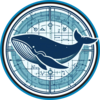

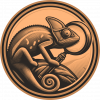
- 42 Resources
- 49 Discussions
- 9 Groups
- @tcsmith
- | he/him
I am a conservation biologist interested in modeling social-ecological systems.
- 0 Resources
- 0 Discussions
- 11 Groups
- @Aurel
- | She/Her
Looking to reconcile biodiversity conservation and finance.


- 2 Resources
- 1 Discussions
- 10 Groups
- @Lysa001
- | she/her
Conservation Biologist
- 0 Resources
- 0 Discussions
- 15 Groups
Natural Solutions

- 0 Resources
- 17 Discussions
- 10 Groups
University of Rizal System
I study fish, their parasites, and freshwater ecosystems to support conservation and sustainability.



- 0 Resources
- 11 Discussions
- 3 Groups
Zoological Society London (ZSL)
- 0 Resources
- 2 Discussions
- 9 Groups
Data scientist with expertise in Computer vision and remote sensing and a passion to work for the environment.
- 0 Resources
- 4 Discussions
- 5 Groups
If you're a Post-Doctoral Fellow, a PhD student, or a member of the research staff interested in applying your computational skills to support active research publications, please read on to learn about the Cross-...
5 August 2025
Lead a growing non-profit to sustain open source solutions for open science!
19 July 2025
At University of Victoria
2 July 2025
This is a chance to participate in a short survey about the preferences that conservation practitioners have for evidence. There's a chance to win one of three £20 Mastercard gift cards.
24 June 2025
Please help us by participating in a MSc research project on what you consider to be 'evidence' in your work in conservation.
19 June 2025
We are hiring for a customer support / marketing specialist.
20 February 2025
Osa Conservation is launching our inaugural cohort of the ‘Susan Wojcicki Research Fellowship’ for 2025, worth up to $15,000 per awardee (award value dependent on project length and number of awards given each year)....
10 February 2025
Key Conservation is seeking an experienced Software Developer to join our team.
28 January 2025
Over the years, a large number of developments have gone up in the area that I live in and the municipality is not doing what they should when it comes to upholding the laws that have been put in place to protect the...
20 January 2025
Training youth and community members as citizen scientists to use smartphone applications for collecting biodiversity data and contribute to the Global Biodiversity Information Facility (GBIF), ebirds, iNaturalist and...
23 December 2024
Dive into meaningful play with FathomVerse!
20 November 2024
The Connected Conservation is thrilled to announce our award's third round in collaboration with the Airbus Foundation. This award champions the use of cutting-edge satellite imagery to tackle biodiversity loss and...
30 September 2024
September 2025
event
event
July 2025
event
October 2024
28 Products
3 R&D Projects
30 Organisations
Recently updated products
Recently updated R&D Projects
Recently updated organisations
| Description | Activity | Replies | Groups | Updated |
|---|---|---|---|---|
| Hi @timbirdweather I've now got them up and running and winding how I can provide feedback on species ID to improve the accuracy over time. It would be really powerful to have a... |
|
Acoustics, AI for Conservation, Citizen Science, Emerging Tech | 1 year 4 months ago | |
| Hi Danilo. you seem very passionate about this initiative which is a good start.It is an interesting coincidence that I am starting another project for the coral reefs in the... |
|
Acoustics, AI for Conservation, Animal Movement, Camera Traps, Citizen Science, Climate Change, Community Base, Connectivity, Drones, Emerging Tech, Human-Wildlife Coexistence, Open Source Solutions, Sensors, Software Development, Wildlife Crime, Funding and Finance | 1 year 6 months ago | |
| Hi folks! Happy 2024 and thanks in advance for your patience in case I over-used tags. If you’re using any form of natural language... |
|
AI for Conservation, Citizen Science, Climate Change, Conservation Tech Training and Education, Data management and processing tools, Early Career, East Africa Community, Emerging Tech, Ending Wildlife Trafficking Online, Ethics of Conservation Tech, Human-Wildlife Coexistence, Open Source Solutions, Software Development, Wildlife Crime, Women in Conservation Tech Programme (WiCT) | 1 year 7 months ago | |
| Hi Eva, Me and my colleagues run a small NGO based on Yogyakarta in Indonesia, although our projects are spread around the country. One of our active project is working with... |
|
Community Base, Animal Movement, Citizen Science, Climate Change, Human-Wildlife Coexistence, Marine Conservation, Geospatial | 1 year 7 months ago | |
| Hi! @Surfingpsychedelicchicken ! yeah we run a conference kind of about this (well actually i've been helping run two conferences about this!) Dinacon and the GOSH gathering!... |
|
Citizen Science | 1 year 11 months ago | |
| Am helping a conservation project use iNaturalist for their work in bio-diversity monitoring and also citizen science, STEM program with... |
|
Community Base, Citizen Science, East Africa Community | 1 year 11 months ago | |
| @richardturere Hello :) and a warm welcome to WILDLABS! Here is the link to @Lekato Samuel Lekato - Founder and Chairman, Enduata Emaa CBO. Sam is interested in conservation... |
|
Citizen Science, Climate Change, Community Base, Connectivity, Conservation Tech Training and Education, East Africa Community, Human-Wildlife Coexistence | 2 years ago | |
| Hi everyone! We are still looking for more participants who have experience with birding to participate in our study 🐦. Read below to view... |
|
Citizen Science | 2 years 2 months ago | |
| Do you have a wild animal tracking story that involves adventure or misadventure? Share it with us! From going around in circles for hours... |
|
Animal Movement, Citizen Science, Drones, Geospatial | 2 years 2 months ago | |
| That sounds like a really neat project! Do fish get re-caught often enough that individual ID is useful? Is sample bias (more data from popular spots) an issue? |
|
AI for Conservation, Citizen Science, Software Development | 2 years 3 months ago | |
| Hello all! Bluspark is a plateform that allows natural area managers such as natural parks or reserves to optimize their day to day... |
|
Citizen Science, Community Base, Connectivity, Conservation Tech Training and Education, Ethics of Conservation Tech, Protected Area Management Tools, Software Development | 2 years 3 months ago | |
| Hi Jim, could you please update us on your final choice and experience so far? |
+13
|
Citizen Science, Software Development | 2 years 6 months ago |
Machine learning for bird pollination syndromes
25 November 2024 7:30am
6 February 2025 9:57am
We are putting together a special issue in the journal Ostrich: Journal of African Ornithology and are welcoming (review) papers on the use of AI in bird research. https://www.nisc.co.za/news/202/journals/call-for-papers-special-issue-on-ai-and-ornithology
WhatsApp images
3 February 2025 5:08pm
3 February 2025 8:33pm
Hi Paula, you're right that WhatsApp strips EXIF metadata (including GPS data), which makes it tricky to collect location information when people share photos. Perhaps you could use Google Photos/Apple Photos. Both automatically embed location data in the images if the device’s location services are enabled when the photo is taken. Then, if users upload their images to one of these platforms, you can ask them to share the photo with a link (which will include the location).
Otherwise, do you know why people are reluctant to use iNaturalist? Seek has a simpler interface and could be a solution for those hesitant about using iNaturalist ?
Hope that helps,
Cheers,
Lucie
Undergrad team available to tackle conservation problem statements
21 January 2025 6:37pm
31 January 2025 9:38pm
Hi Colleen,
Thank you for sharing this exciting opportunity. I am Lucie, International Development Manager of Natural Solutions. We are a company at the intersection of biodiversity and tech for over 15 years. We specialize in developing digital tools for conservation organizations, researchers, and policymakers, helping them collect, analyze, and visualize biodiversity data. More recently, we’ve been exploring new possibilities and began to analyze what we could propose to businesses to support them in understanding their dependencies and impacts on nature (impact assessment platforms that help companies quantify their environmental footprint, define relevant indicators, and develop actionable biodiversity strategies etc)
We would be interested in exploring whether this topic could be relevant for your students.
Would this align with your students' interests and skill sets? Additionally, could you share more details on the timeline and any constraints—when would the project start, and what are the expected deliverables?
Looking forward to discussing this further! My email is lucie_gallegos@natural-solutions.eu
Don't hesitate to reach out!
Best,
Lucie
Software Developer - Key Conservation
28 January 2025 11:36pm
Can/Should UAVs Be The Answer To Urbanisation & Wildlife Conflicts
20 January 2025 11:00am
Thesis Collaboration
4 January 2025 5:15pm
7 January 2025 12:32pm
Hi Simon,
Did you already contact INBO? Both biologging and citizen science are big themes at INBO. Last year we had a master thesis on camera trapping invasive muntjac. You can send me a private message for more info!
14 January 2025 3:30pm
Hi Simon,
We're a biologging start-up based in Antwerp and are definitely open to collaborate if you're interested. We've got some programs going on with local zoo's. Feel free to send me a DM if you'd like to know more.
15 January 2025 8:30am
Hi Simon,
We (Reneco International Wildlife Consultants) have an ongoing collaboration with a local University (Abu Dhabi, UAE) for developing AI tools (cameratrap/drone images and video analyses) and biomimetic robots applied to conservation (e.g https://www.sciencedirect.com/science/article/pii/S1574954124004813 ). We also have a genetic team working on eDNA. Field experience could be possible, in UAE or Morocco.
Feel free to write me back if you may be interested and would like to know more
Citizen Science Training Project for Youth and the Community.
23 December 2024 3:22am
Birdweather Puc use as a passive sensor
13 December 2024 6:46am
13 December 2024 3:07pm
Checking the Birdweather FAQ, I guess you need to be more detailed on the setup description. For example, if you use a powerbank to power the PUC that is NOT ALWAYS-ON, it may swich-off after some time. So details of your setup may matter.
Caveat, I do not have a PUC, but tried to understand you problem.
18 December 2024 1:03pm
Thanks for the advice Wade!
It will be great to hear Tim's feedback, but thanks for your advice! I think Lithium batteries are the next step for us. I have successfully gotten it working with a power bank attached, but that really impedes its portability. Will also fiddle around with the GPS per your recommendations...
18 December 2024 1:10pm
Hello Walter
Thanks for your input. I have achieved better results with the puc when hooking it up to a powerbank. Have got them set up to "recording only", and GPS to low power mode. Looking to now try eliminating the need for a power bank as that impairs the portability of the puc.
Roe deer protection needed in Hungary, national government should stop funding hunting organizations - call for international support
7 October 2024 11:58am
14 October 2024 12:41pm
Really? Can you share where its written.
Annex III: protected fauna species, do you need a glass?
14 October 2024 1:33pm
A quick search comes up with the following answer. Let us know if that helps.
Annex III of the European Environmental Agency (EEA) does not directly regulate the protection or hunting of specific species. Instead, it's important to look at Annexes II and IVof the EU Habitats Directive (Directive 92/43/EEC) for species protection and hunting regulations in the European Union.
Roe deer (Capreolus capreolus) is not listed in Annex IV (which covers strictly protected species), meaning it is not afforded the strictest protection that prevents all forms of exploitation. However, Annex III of the Bern Convention, which relates to species that may be exploited but require careful regulation, includes species like roe deer.
In many European countries, roe deer hunting is permitted under specific regulated conditions. These regulations aim to ensure sustainable hunting practices and maintain healthy population levels, with hunting seasons and quotas determined based on local wildlife management policies.
In summary, roe deer are generally not strictly protected across the EU, and hunting is allowed under regulation, though specific conditions depend on national and regional legislation.
Disclaimer: I can't guarantee that the above is not a hallucination :-)
15 October 2024 11:24am
Thanks, we know they are breeding these animals here, I asked, since it's seems to be an expensive hobby, we need to allocate more funding for rural women in entrepreneurship and access to technologies, reduce poverty in Hungary No1 priority.
That's the problem local peoples can not afford buying wild meat from the "local shop"
Fully uncontrolled activites in Hungary
WILDLABS AWARDS 2024 - Fostering bat conservation and citizen science in Zimbabwe: Establishing bat groups and training individuals to use bat detectors
4 April 2024 12:12pm
24 April 2024 2:27pm
Thank you Robyn. Sure I will send more information to your email
9 September 2024 2:28pm
Hi everyone
Our project on fostering bat conservation and citizen science in Zimbabwe has reached another level. To date, the project team has established two bat groups in Bulawayo and Chimanimani. Forty-three people from these two provinces have been educated on bat biology and trained in the use of bat detectors. The trainees appreciated the importance of bats in the environment, and that their conservation is essential.
Due to limited resources, the training sessions were not sufficient for the trainees, as the Kaleidoscope software for analyzing data is somewhat complex. A similar training workshop will be conducted in Harare.
Next steps of project:
Continue training bat group participants on using bat detectors and analyzing acoustic data;
Reach out to other areas and establish bat groups across the country;
Promote and research important habitats for bats in Zimbabwe.
We continue to express our gratitude to @wildlabs for funding the project. The team: @Ronnie @Ropafadzo @Karen
1 October 2024 8:17pm
I would love to see my bat detector designs in use in Africa - drop me a line, let's see if we can get something to happen - I'm pipistrelledetector at gmail dot com

http://www.pippyg.com
Building a biodiversity startup focused on getting landowners to use native plants
23 September 2024 3:37pm
30 September 2024 10:06pm
This sounds a similar tool you may want to check out - Ecodash.ai
1 October 2024 2:40pm
Thanks! Do you happen to know how to get in touch with the folks leading this initiative?
1 October 2024 2:47pm
I'm not affiliated, I just happened across it... not sure who is actually leading it.
Calling for applications for Round 3 of our Satellites for Biodiversity Award Grant
30 September 2024 5:22pm
Design-led innovation for nature
20 September 2024 2:24pm
Catch up with The Variety Hour: August 2024
20 August 2024 12:58pm
Community Choice Award Winners: 2024 #Tech4Wildlife Photo Challenge
15 August 2024 2:41am
Enhancing Public/Private Safety and Health Through Toilet Mapping
22 July 2024 12:25pm
9 August 2024 4:30pm
Well stated I completely agree, how do you think this can be done to marginalized groups without the financial muscle?
9 August 2024 5:37pm
Mh! am not sure, but I believe that financial support is essential for this to succeed.
9 August 2024 5:43pm
However, I think it's important to reflect further to determine exactly what needs to be done.
Volunteering in Bioacoustics
10 July 2024 9:46am
6 August 2024 1:59pm
Hey @cesar_rou ,
I've heard about these internship/volunteer opportunities that may be of your interest.
https://archipelago.gr/get-involved/placements-and-internships/marine-mammal-team/
https://www.cetaceos.org/intership-erasmus/
https://www.cetaceos.org/volunteering/
Also you could subscribe to MARMAM list which often post on training opportunities related to marine mammals.
6 August 2024 3:37pm
Hi César,
Is there a geographic area you're limited to? That would help to narrow down options.
I would recommend reaching out perhaps to the Kitzes Lab, Sound Forest Lab, or Cornell Yang Center?
Integrating Maps with VR/AR for Exploring Environmental Conservation and sensitization
3 August 2024 7:29am
3 August 2024 3:26pm
Very interesting topic
AI and Ecology Research Infosession
1 August 2024 3:58pm
23 August 2024 9:44pm
Introducing Toilet Mapper: Enhancing Public Health and Safety through Innovative Mapping
22 July 2024 11:51am
19th Australasian Vertebrate Pest Conference 2024
12 July 2024 12:42am
Game-changing Bat Detectors to Hit Global Market
2 July 2024 1:18pm
Enter to win a free thermal camera!
26 June 2024 5:38pm
Training Youth and Community on Data Collection as Citizen Scientists.
16 June 2024 4:19am
17 June 2024 1:03pm
17 June 2024 1:59pm
17 June 2024 7:59pm
Data loggers for sewage monitoring
7 May 2024 3:51pm
18 May 2024 2:55am
Hi Jamie,
Nitrate sensors for sewage are quite pricey, so I might go with a bunch of OpenCTD loggers, on the theory that the conductivity will spike in sewage. There may also be a detectable temperature signal.
31 May 2024 6:52pm
Jamie/Harold: OpenCTDs are awesome but unfortunately conductivity won't indicate sewage against a background of seawater. I think DO is an interesting avenue to explore but I'm not aware of much published research on correlations there. I've heard of folks using a variety of fluorescence-based sensors (e.g., CDOM to indicate the organic matter, tryptophan-like fluorescence, and possibly optical brightener fluorescence). I think it's all still a very active field of research, so can't wait to hear what you learn!
How Can Tryptophan-like Fluorescence Be Applied For Monitoring Water Quality And What Can It Do For You?
How Can Tryptophan like Fluorescence Be Applied For Monitoring Water Quality And What Can It Do For You and your water quality
BTW, I thought of SMRU's tags when I just saw this other thread to which @htarold recently replied over here:
If you can share how SMRU implements your tags' saltwater switch(es) in that thread, @jamie_mac, that would be a huge help!
10 June 2024 8:31am
€4,000 travel grants for insect monitoring an AI
6 June 2024 4:49pm
New WILDLABS Funding & Finance group
5 June 2024 3:24pm
5 June 2024 4:14pm
6 June 2024 1:38am
6 June 2024 4:16am
Recruiting for a paid study on Explainable AI & bird identification
1 June 2024 8:34pm



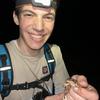

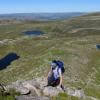












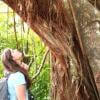

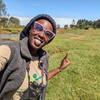

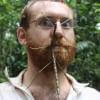






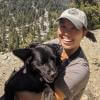


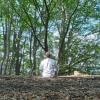



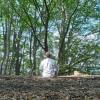





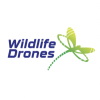
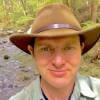




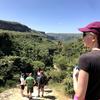





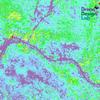

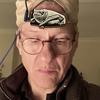











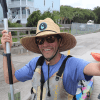




3 January 2025 3:55am
Hi @craigg, my background is machine learning and deep neural networks, and I'm also actively involved with developing global geospatial ecological models, which I believe could be very useful for your PhD studies.
First of all to your direct challenges, I think there will be many different approaches, which could serve more or less of your interests.
As one idea that came up, I think it will be possible in the coming months, through a collaboration, to "fine-tune" a general purpose "foundation model" for ecology that I'm developing with University of Florida and Stanford University researchers. More here.
You may also find the 1+ million plant trait inferences searchable by native plant habitats at Ecodash.ai to be useful. A collaborator at Stanford actually is from South Africa, and I was just about to send him this e.g. https://ecodash.ai/geo/za/06/johannesburg
I'm happy to chat about this, just reach out! I think there could also be a big publication in Nature (or something nice) by mid-2025, with dozens of researchers demonstrating a large number of applications of the general AI techniques I linked to above.